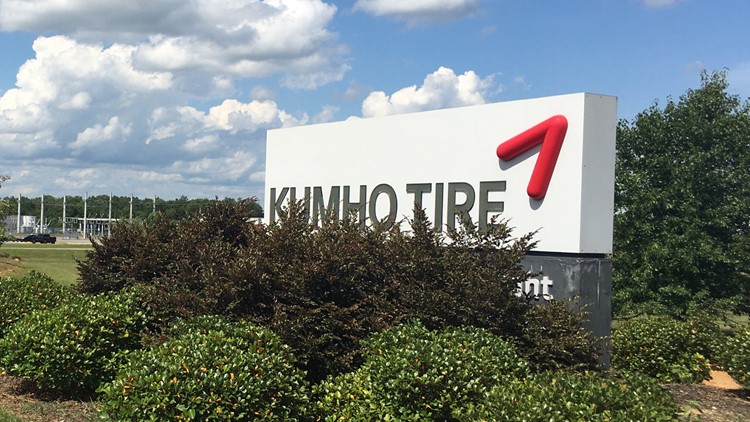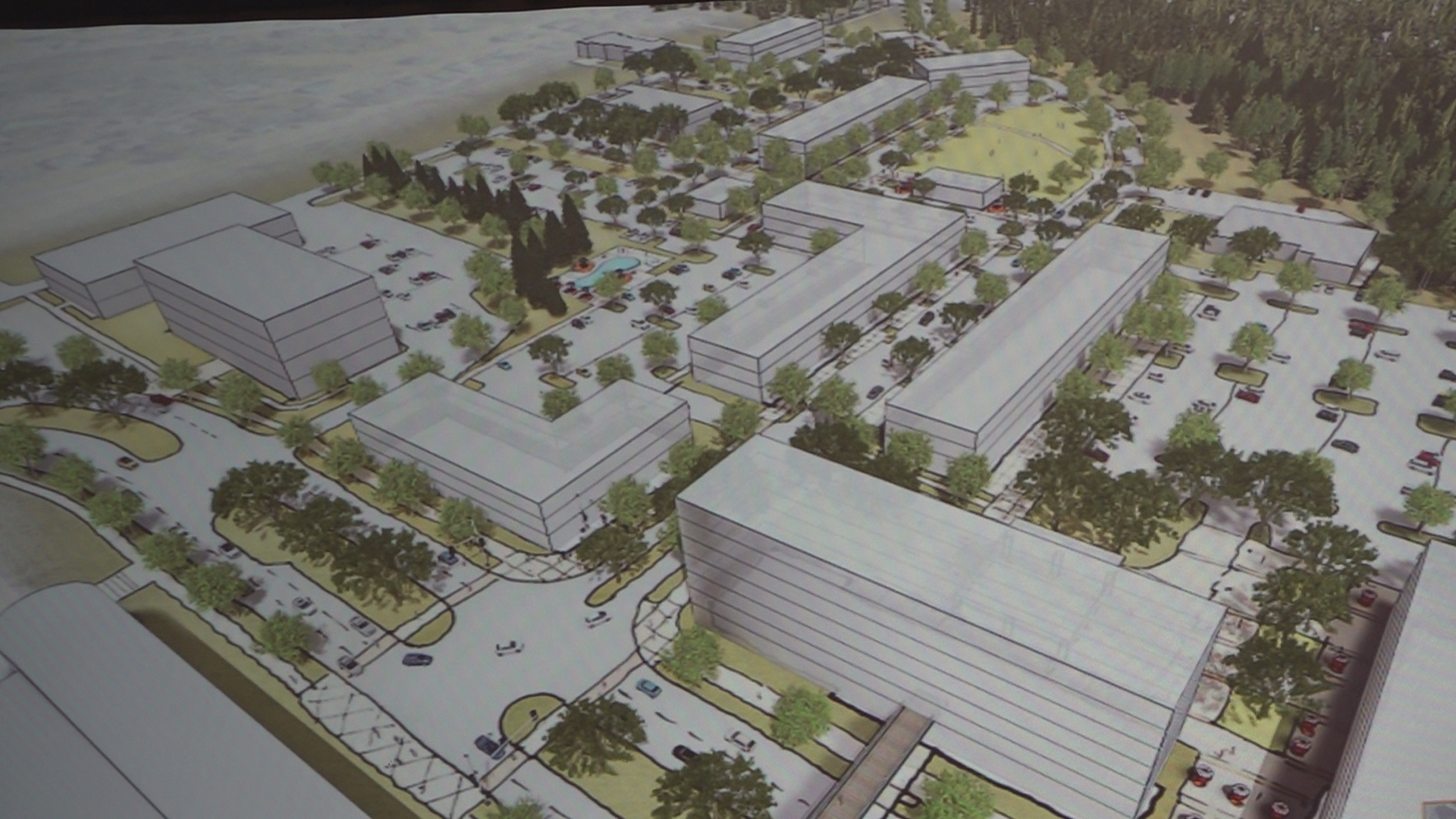MACON, Ga. — The security guard at Kumho Tire Georgia not only records visitors’ license plate numbers but takes body temperatures before allowing anyone to enter the gate.
Heat sensors greet each employee reporting to work to catch anyone with an elevated temperature.
These are just two examples of measures the south Bibb County manufacturer has taken since the onset of the COVID-19 global pandemic.
Company executives invited the Center for Collaborative Journalism to visit the plant after United Steelworkers Union president Alexander Perkins accused the company of being reckless with employees’ health.
Last week, Perkins brought his concerns to the Macon-Bibb County Board of Health which approved a resolution encouraging the public to report any violations of guidelines set to reduce the spread of the deadly coronavirus.
Kumho, which employees about 500 people including contractors, has not had a single case of COVID-19 among its workers, human resources director Keith Lolley said.
To encourage self-reporting of symptoms and possible exposure, Kumho added an additional 84 hours of personal time off to allow for quarantining, Lolley said.
On March 10, they had their first close call when a team member’s adult daughter was exposed to someone with COVID-19. The worker was quarantined with pay, but did not come down with the virus.
“We really stressed individual responsibility,” Lolley said. “That’s what the CDC pushes ‘cause it takes everyone being responsible. If individuals aren’t responsible, it’s difficult to be safe.”
Weeks before the World Health Organization declared a pandemic on March 11, the company had already held a February town hall meeting to educate its workers about the virus and placed travel restraints on employees, Lolley said.
Plant manager Patrick Lenz said, “We started talking about COVID-19 back then before it was in vogue.”
A series of letters printed in four languages began to be distributed to workers within a week of Gov. Brian Kemp’s public health state of emergency declaration.
The letter dated March 20 states that hand sanitizers were installed near time clocks and other heavy traffic areas, cleaning crew hours were increased and sanitizing soap was made more widely available.
Perkins’ complained that he had heard from workers that there was no anti-bacterial soap and alleged the company was showing a “total disregard for workers.”
Lenz admitted there was a time they couldn’t get refills for the dispensers already installed, so the company ordered a couple of different brands and put up additional dispensers.
The elevator in the lobby was flanked with two different types of hand sanitizer dispensers, evidence of the effort to maintain a steady supply amid widespread shortages of disinfectants.
Kumho initially shut down operations from April 1-8 and extended that another week to try to slow the spread. Another shutdown from April 19 until May 2 responded to market conditions and a decreasing demand for tires from automobile manufacturers facing their own shutdowns due to the virus. Staggered shifts resumed to allow for more cleanings.
Workers were eligible for unemployment and the company filed claims on behalf of its staff, Lolley said.
During that time, additional cleaning crews were hired to sanitize the plant and allow extra disinfecting.
As guidelines for gatherings changed, Kumho suspended larger town hall meetings and began dispensing information in smaller groups. Video monitors continually spread the latest tips to avoid becoming infected.
As for Perkins’ complaint, the executives pointed out Kumho awaits the Labor Relations Board certification of last year’s union election. The union won a 4-vote victory but 13 ballots are being challenged.
“That individual that spoke (to the health board) has not been in the facility so any comments he made… are from someone sharing the information,” Lolley said.
Lenz said he walks the production floor every day.
“Not one employee has spoken to me about not doing enough for COVID-19,” he said.
Macon-Bibb County Industrial Authority executive director Stephen Adams has continually updated local industries in the changes to guidelines and maintains that local manufacturers are treating the pandemic seriously and “going above and beyond” guidelines.
Masks currently are not required unless workers cannot stay 6 feet apart.
The robotic nature of Kumho’s assembly line helps provide adequate social distancing in the 1 million square foot-facility, Adams said.
“There’s not a lot of people in close proximity,” Adams said.
In hindsight, Lenz said they wish they had taken precautions sooner but were operating with the information available at the time.
“Safety is a journey. You never arrive. No matter how good we get there’s always the next level,” Lenz said.
Contact Civic Reporting Senior Fellow Liz Fabian at 478-301-2976 or fabian_lj@mercer.edu.
MORE FROM LIZ



